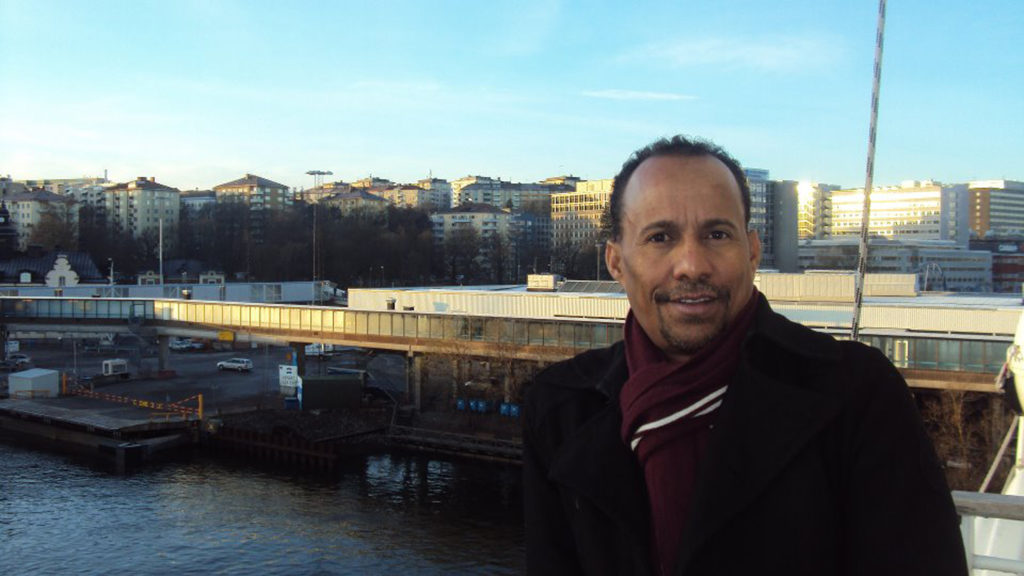
A few months ago we featured an excerpt of Awes A. Osman’s novel, Skinless Goat in Somalia, as part of #100daysofafricanreads. The book was inspired by Awes Osman’s student days in India and focuses on the story of an Indian girl, and a Somali boy; the repercussions of their romance and the Somali and Indian mindset vis-à-vis the relationship.
Below is an interview with Awes A. Osman.
The characters in Skinless Goat in Somalia encounter a lot of religious and cultural conflict. Acknowledging that these conflicts characterize several societies today, how do you propose that they be effectively mitigated?
It is very important that we educate people, especially children in elementary school, about different religions, cultures, and geographies. Through knowledge and understanding of others, we can reduce the risk of misunderstanding and conflict.
There is this balancing act in your writing; the way your characters are able to experience some peace of mind, and amazement, despite fearing the terror and violence being directed towards them. For instance, on the train, Omar is able to enjoy the scenery and wonder at the villagers he sees along the way, despite the looming worry about his parents’ reaction to his romance with Sunita. Is this duality something that you feel we experience a lot as human beings?
There is a natural way of balancing two different feelings at the same time within the human being. The ability to sustain this balance depends on the personality and experiences of the person.
Still on your first book, if you had to rewrite it, would you still publish it as it is, or would you change anything? Were there any alternate endings you considered?
I am totally happy with the way I started the story, and the way it ended.
Skinless Goat in Somalia is greatly inspired by your student days in India. Are there any autobiographical elements in the book?
Some parts of the story, for instance, when the four Somali students debate at the balcony in Jabalpur, is actually inspired from how I lived in the same city with other Somali students.
Just as your work has inspired other writers, are there any writers whose work greatly influences you?
Chinua Achebe, Agatha Christie, and James Hadley Chase are the writers that put the love of writing in me as a child. I remember reading Things Fall Apart as a child, and loving it so much that I wanted to be like the writer whose picture was on the cover of the book.
What would you say influenced your decision to work with refugees and immigrants, and help them integrate the Swedish society?
Given that I myself went through the ordeal of being a refugee, I love to help them, and I see myself as an expert who knows their situation and can guide them.
You are currently working on a new book. Can you share a few insights into your current work with us?
It is about my life in Sweden, and the difference between Africa and the Scandinavia in everything.
Your stay in Jabalpur, India, was the major inspiration for your first book. You have lived and worked in many different places after India (Saudi Arabia and now Sweden). Should we expect your experiences in all these places to feature in the book you are currently working on?
A writer cannot avoid drawing from his personal experiences in his stories, because the places he saw and lived in, are the places he can depict in his writings. My next book will definitely involve places that I have lived in.
Does your work with immigrants, and the experiences they share with you, make you want to capture their plight in fiction?
Of course, they are such interesting and inspiring stories from which I learn every day. They are usually about different refugees who struggle with two ways of live and the obstacles in front of them during progress in life. It is something that will potential influence my next writings.
As an African living in the Diaspora, do you feel that you are still able to connect with your African heritage and infuse it into your writing?
My African heritage is something that cannot be disconnected from my life and my writing life. No matter how much one is integrated into the society one lives in for a long time, the place where one is born has a great influence on one’s personality.
Q & A with Awes A. Osman on Books, Conflict & Displacement
